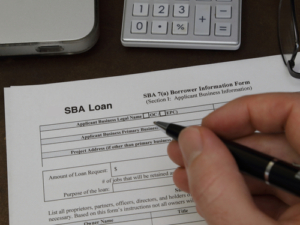 While due diligence is a term that encompasses all the things you need to examine more closely when buying a business (or anything, for that matter), legal due diligence is a subset of that diligence that you need to pay attention to. Each of the categories we will mention in this article can be its own rabbit hole and it can sometimes be tempting to leave rabbit holes in peace, but for peace of mind when buying a business, you need to explore each one to make sure no surprises pop out after a sale.
While due diligence is a term that encompasses all the things you need to examine more closely when buying a business (or anything, for that matter), legal due diligence is a subset of that diligence that you need to pay attention to. Each of the categories we will mention in this article can be its own rabbit hole and it can sometimes be tempting to leave rabbit holes in peace, but for peace of mind when buying a business, you need to explore each one to make sure no surprises pop out after a sale.
Leases
While the one lease that everyone thinks about in a business sale is the one for the office space, there are also vehicle, equipment, and furniture leases to consider.
In all these cases you are going to want to examine the procedures for transferring the lease to another person. Most often, in an office space lease, the lessor is going to want to extend the lease for a certain additional period beyond the current term. That length is negotiable, but never expect the transfer of a real estate lease to be a mere formality. We’ve watched location-dependent deals blow up because the buyer and seller didn’t take this part of legal due diligence seriously.
Contracts
Many businesses don’t have employment contracts but they may have licenses that they issue or obtain that function as a contract.
If these contracts are not necessary for the new owner to assume, he/she may choose to use a different mechanism to continue the agreements that the contracts currently assume.
Lawsuits
With lawsuits buyers should be looking at three “Ps”: past, pending, and potential, i.e. has there been any litigation in the past, is any pending, and is there the potential for litigation in the future?
IP
More and more important in a digital age, intellectual property needs to be secured. Many times, business owners have never been properly advised to get copyrights or trademarks, and in the legal due diligence process these are either obtained by the outgoing owner and bundled into the sale or by the incoming owner and noted as part of the transaction.
Remember that IP can also include systems that are used internally or are licensed to others.
Taxes and Liens
If there is real estate in the deal, are there any outstanding property taxes due? What about liens on the property or business?
Environmental Issues
This is rarer in business transactions, but when it is relevant it is often overlooked. Is there any specialized care or maintenance that needs to conform to environmental standards set by federal, state, or municipal authorities? If so, has it been done regularly?
Good Standing
Is the business in good standing and is the counterparty you are dealing with the only one necessary to authorize the sale of the business?
Warranties and Representations
This is the “fine print” that people often overlook, but the overarching scrutiny here should be on what the seller is stating about the condition of the business, particularly any potential downsides.
Feeling panicky or discouraged looking at all the aspects of legal due diligence? Don’t be! We are here to help you every step of the way. Give us a call.

 If you ask Ian Fraser, co-founder of
If you ask Ian Fraser, co-founder of  Virtue is a key part of living a useful and rewarding life. Not only are there many virtues any of us can work to obtain, there are levels of those virtues that allow us to always keep pushing and improving over the whole of our lives. Just as some virtues, for example, patience, are particularly important for parents, so too are others for business brokers. In this article we are going to highlight four in particular (though brokers need more than these four to close most deals!).
Virtue is a key part of living a useful and rewarding life. Not only are there many virtues any of us can work to obtain, there are levels of those virtues that allow us to always keep pushing and improving over the whole of our lives. Just as some virtues, for example, patience, are particularly important for parents, so too are others for business brokers. In this article we are going to highlight four in particular (though brokers need more than these four to close most deals!). While due diligence is a term that encompasses all the things you need to examine more closely when buying a business (or anything, for that matter), legal due diligence is a subset of that diligence that you need to pay attention to. Each of the categories we will mention in this article can be its own rabbit hole and it can sometimes be tempting to leave rabbit holes in peace, but for peace of mind when buying a business, you need to explore each one to make sure no surprises pop out after a sale.
While due diligence is a term that encompasses all the things you need to examine more closely when buying a business (or anything, for that matter), legal due diligence is a subset of that diligence that you need to pay attention to. Each of the categories we will mention in this article can be its own rabbit hole and it can sometimes be tempting to leave rabbit holes in peace, but for peace of mind when buying a business, you need to explore each one to make sure no surprises pop out after a sale. While no one is usually excited to hear about changes to a government program (more fine print to read?) we here at Apex are pleased to see some of the changes coming in August 2023 to
While no one is usually excited to hear about changes to a government program (more fine print to read?) we here at Apex are pleased to see some of the changes coming in August 2023 to 